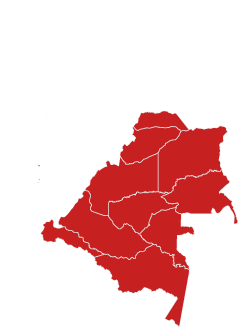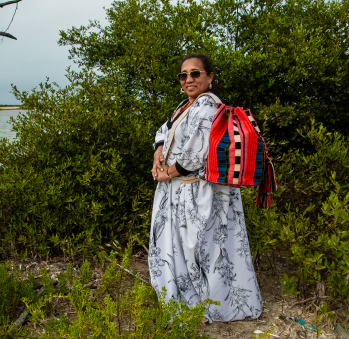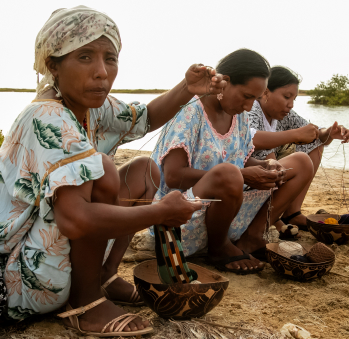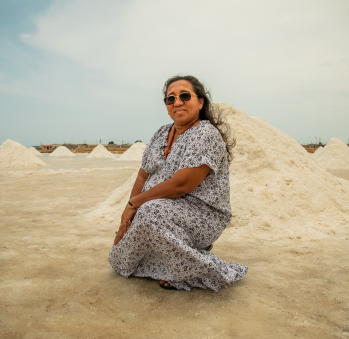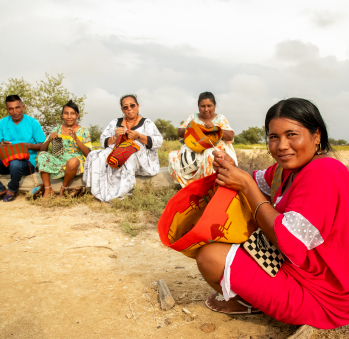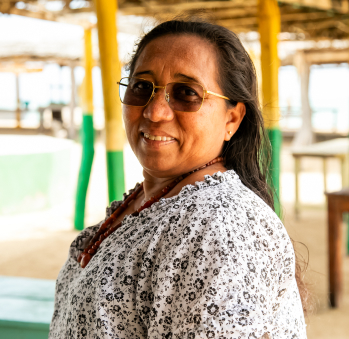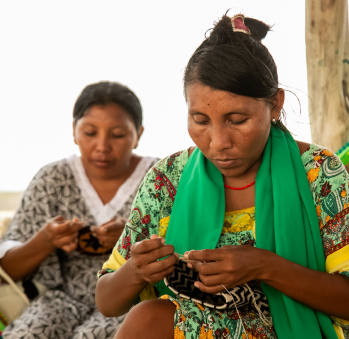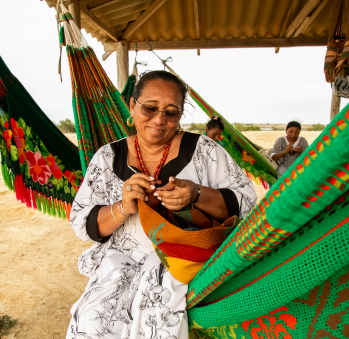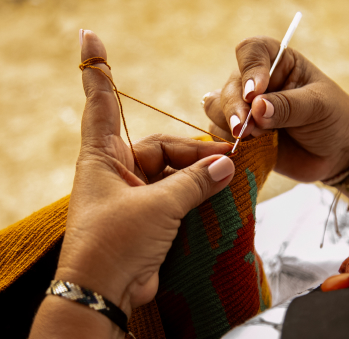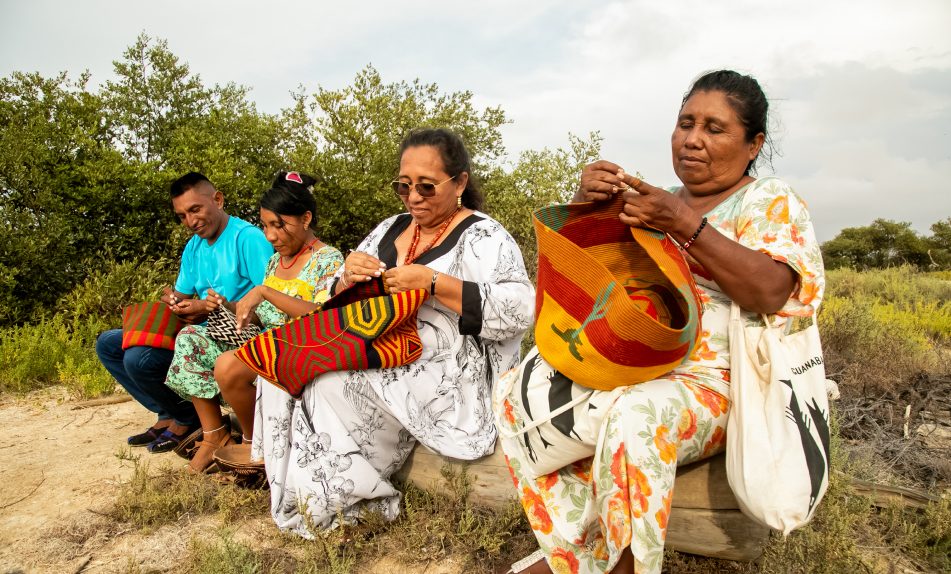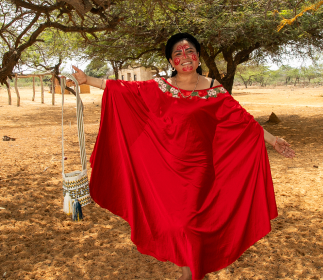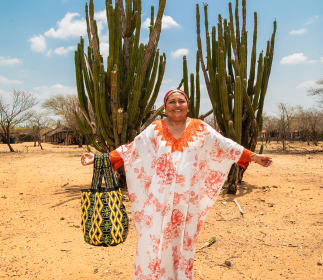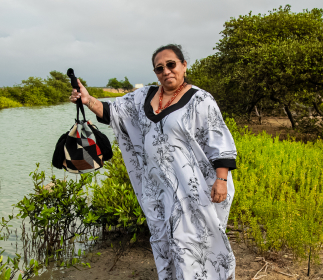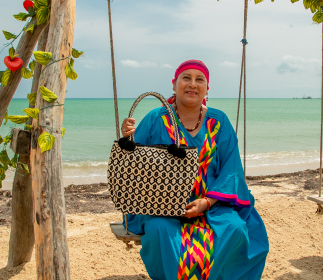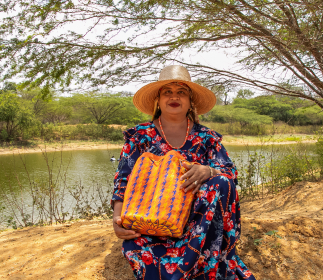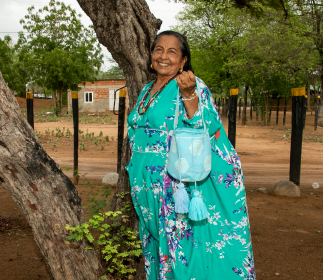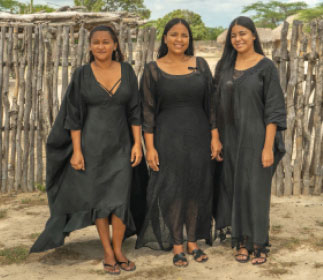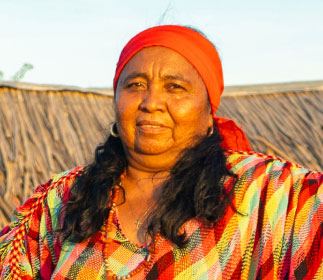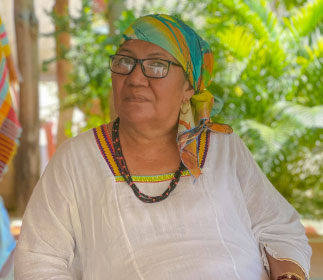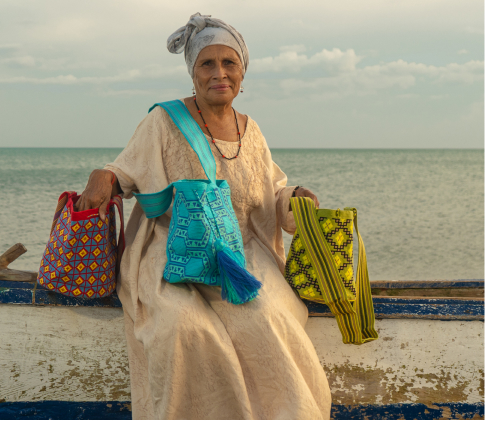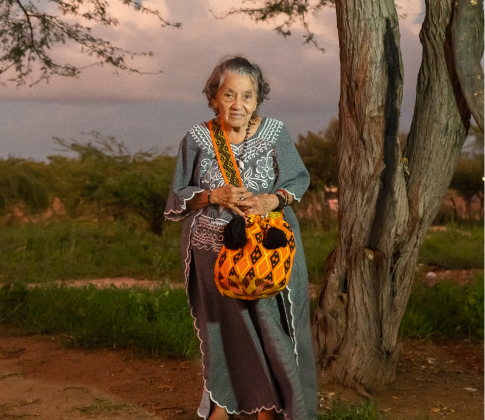Gloria Epieyú
Workshop: Gloria Epieyu
Craft: Weaving
Trail: Riohacha - Nazareth Route
Location: Manaure, La Guajira
SCHEDULE YOUR VISIT
Carrera 9 # 11 - 40, Manaure, La Guajira
3126520795
Lamakuira@hotmail.com
It’s hard for Gloria to hide her leadership streak. She’s a powerhouse of ideas aimed at improving her community day by day. Perhaps that’s why the first thing she mentions about herself, although she carries the ancestry of weaving in her blood like many Wayuu teachers who see themselves as ambassadors of their culture, is that what sets her apart is primarily her social work. For her, craftsmanship is the vehicle through which a culture gains autonomy and fights against needs.
Interestingly, she gained fame in Santa Marta. On its beaches, selling bags. She became so popular that it became her main market. She would return to Manaure to weave and come back with precious pieces appreciated by tourists. And she started forming groups of artisans to meet the demand. Good sales allowed her to buy the thread and thus a whole work system was assembled. People waited for her, and sought her out. And she sought and sought to grow her network to the point where she managed to get many young Wayuu women out of family homes where they had gone to seek work as domestic workers and offered them instead weaving as a means of subsistence more tied to their roots, as well as profitable. Proudly, she says that many of them have now turned their art into a productive enterprise. This earned her the title of Mujer Cafam in 2012. Even the mayor of that coastal city supported her initiatives and relied on her to participate with her products in a more formal way, supplying bags to hotels and tourism businesses.
In this way, Gloria built a work model where she never lost focus: moving her community forward. Just as her mother Fabia did with her, having raised her alone as her father was not there. She did everything necessary for this, she registered her brand and formalized all kinds of documents, which allowed them to compete. She recalls traveling through the villages weaving networks of people, trying to break down that custom of older artisans who wove because that’s what was done, but where bags or hammocks were not valued as products that could bring them out of poverty. Likewise, she managed to show the men that being ashamed and hiding behind a sheet to weave wasn’t worth it, because what they did was very valuable and, moreover, they were excellent weavers, because they infused their works with a strength that made the bags sturdy. In this way, she has managed to consolidate a group of 182 artisans who uplift the Manaure region and give her the opportunity to visit fairs throughout Colombia.
Lastly, as if that weren’t enough, she pointed out that the cultural beauty of her territory was in itself another source of income. That’s why she has turned tourism throughout the department into a way to enhance the travel experience. “If you want to go to Cabo, I’ll take you there, the same goes for Nazareth,” she says, knowing that anyone who falls into that web of knowledge will receive a gift. Because that’s what she does, she shows us her culture so that we can discover it, value it, and if we fall in love with it, we’ll take care of it as she has always done.
Craft
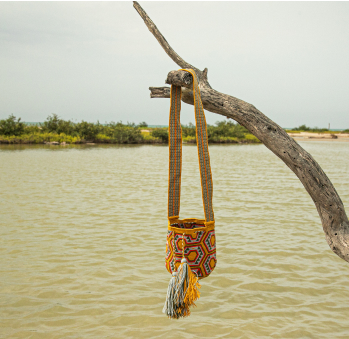
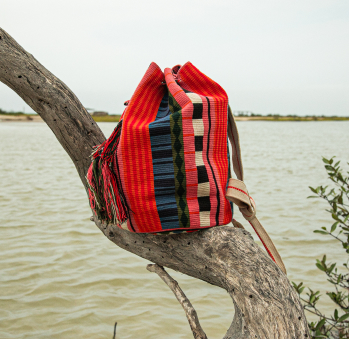
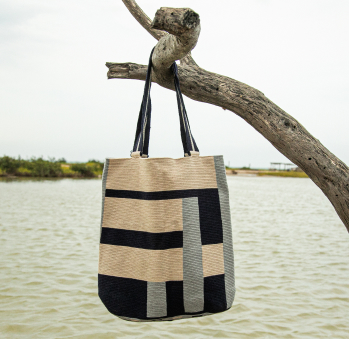
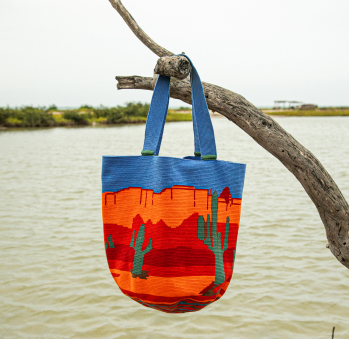
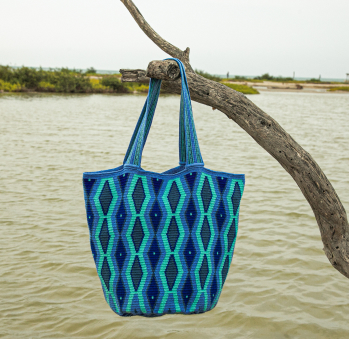
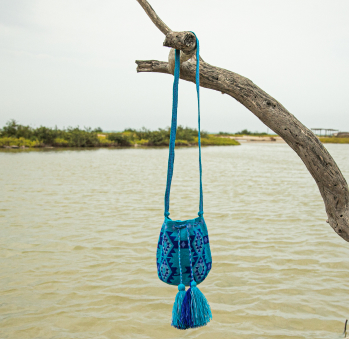
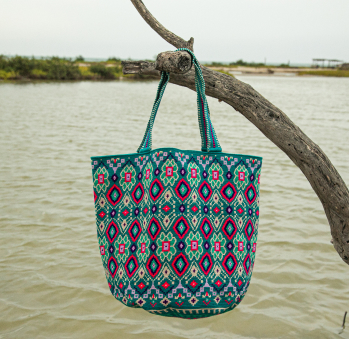
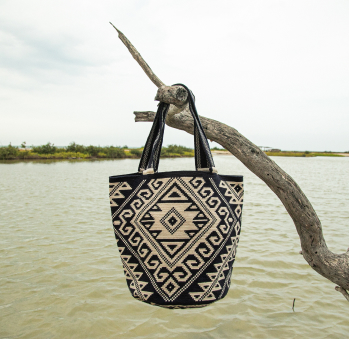
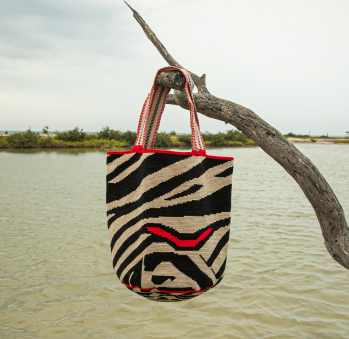









Artisans along the way
Artisans along the way
No puede copiar contenido de esta página

